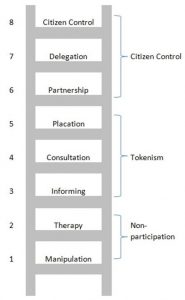Stakeholder engagement is central to tackling COVID-19
07 April 2020

In our conversations with NHS boards about their responses to COVID-19, GGI has been looking to identify practical guidance and tips we can provide to help them operate most effectively during the current crisis. Today’s bulletin offers food for thought about stakeholder engagement and the role of boards in this area.
The coronavirus pandemic has clearly demonstrated the fundamental need for authentic stakeholder engagement and community voice to serve as core aspects of good governance. In recent months, governments and health and care systems throughout the world have undertaken unprecedented awareness-raising campaigns in the interest of public health. The slogan to “stay home, protect the NHS, save lives” will be familiar to many in the UK, along with handwashing and social distancing guidance.
And while these messages have been rightly championed by public sector leaders, it is important for board members to remember that even in times of crisis, authentic engagement means more than one-sided communication.
As the World Health Organization’s (WHO) Emergencies Programme Executive Director Dr Michael Ryan stated in a recent press briefing, there is a “need to engage with communities very deeply; community acceptance is very important” in successfully tackling outbreaks.
In that same briefing, Dr Ryan recognised that perfection is the enemy of the good when it comes to emergency management. Such is the balance that board members must seek to achieve in these challenging times.
Resources and opportunities are already in place
Before the impact of COVID-19 on the NHS, many system and place-based narratives were being developed and some boundaries were being blurred both within the NHS and between NHS organisations and others.
While the NHS shifts to a greater ‘command and control’ stance in addressing the national COVID-19 response, boards should not lose sight of progress made with integration initiatives in their area and the opportunities these might provide for creative and impactful engagement.
Now more than ever, boards must recognise community voice, influence, and measurable local impact as part of their core responsibilities. For some boards this might involve operating outside their traditional comfort zones in exploring and quickly implementing connecting principles and engagement techniques.
Our previous bulletins have covered rapid innovations implemented by boards, such as videoconferencing and other forms of digital board-level communication, many of which can apply to broader stakeholder engagement. We would also encourage boards to consider the levels of evaluation and impact assessment within these areas that are possible as part of supporting their core accountability.
Be clear on desired impact
Community engagement has its origins in shifting power. More recently it has developed around concepts of ownership and community politics, while still involving considerations of opening up the organisation to different degrees of influence and balance in its governance.
Sherry Arnstein’s influential ‘Ladder of Citizen Participation’ outlines different degrees of engagement on a scale of participatory decision making. This is a useful prompt for boards when considering the impact of engagement.

It is clear that the extraordinary response to COVID-19 requires stakeholders to be informed as a priority. Teams throughout the public sector have been working tirelessly to ensure that communities are aware of the risks they face and the measures they should take to keep safe and support the best use of limited resources.
Just as authentic engagement offers boards the benefit of a diversity of perspectives, a range of modes of engagement will be required throughout the COVID-19 response. As the emphasis eventually shifts from prevention and delay towards economic recovery, community rehabilitation and the business-as-usual demands on health and care, boards will be well served by the efforts they make now with different styles and degrees of engagement.
Institutions are being held accountable by increasingly active and engaged stakeholder expectations, and for the NHS to fulfil its ambitions and obligations as an anchor institution, boards need to have diverse voices in their decision-making. Within the current context, boards have the opportunity to intentionally build inclusion through engagement, investing in the potential future impact on employment, education, and community resilience, as well as immediate healthcare delivery.
To summarise:
1. Even in times of crisis, authentic engagement means more than one-sided communication.
2. Deep community engagement is required to successfully tackle outbreaks.
3. Perfection is the enemy of the good when it comes to emergency management – such is the balance that board members must seek to achieve in these challenging times.
4. Boards should not lose sight of progress made with collaboration and integration initiatives in their local area, and the opportunities these might provide for creative and impactful engagement.
5. Boards are working outside their comfort zones to respond to COVID-19. They should be prepared for this to extend to exploring and quickly implementing connecting principles and stakeholder engagement techniques and assessing their impact.
6. A range of modes of engagement will be required throughout the COVID-19 response. Boards will be well served by the efforts they make now with different styles and gradations of engagement, which can contribute to the economic recovery and community rehabilitation that will be required in the coming months and years.
As ever, GGI is interested to hear perspectives and experiences of those within the public sector and within governance more broadly.
We are also currently offering our advisory service free of charge to all public sector organisations and their boards. If you have any specific questions on board paper writing or you have any other comments about this briefing, please call us on 07732 681120 or email advice@good-governance.org.uk and we will aim to respond within 24 hours.

